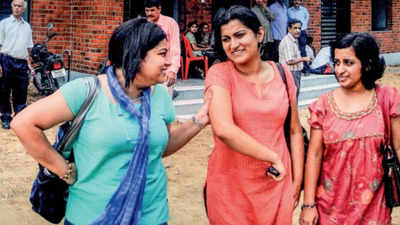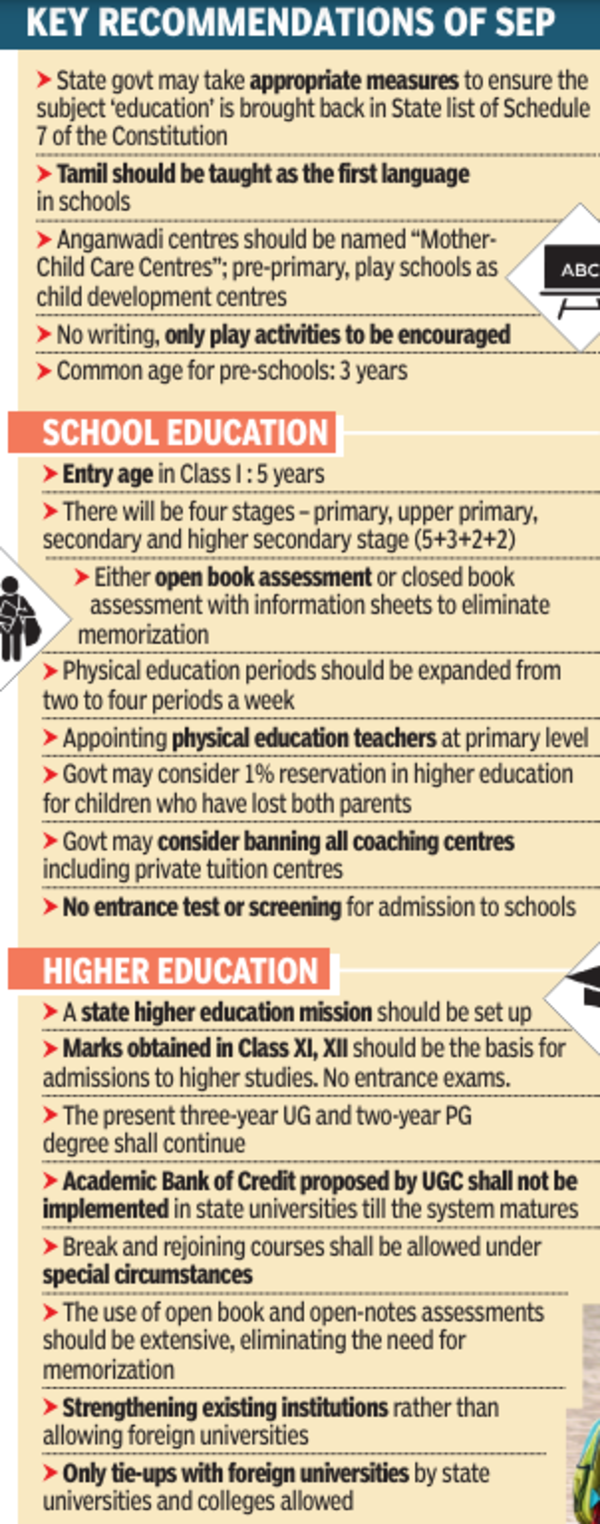- News
- City News
- chennai News
- Tamil Nadu walks its own path on education
Trending
Tamil Nadu walks its own path on education
Justice Murugesan's panel proposes measures to safeguard Tamil Nadu's education system and infrastructure from potential NEP disruptions. The recommendations aim to maintain a seamless school-to-college transition and offer flexibility in degree programs, prioritizing the state's educational interests and infrastructure.


The Murugesan panel report runs counter to the National Education Policy (NEP). It favours continuing with the existing school education system instead of the 5+3+3+4 system proposed by NEP. It recommends five years as entry age for Class I against six years by NEP. UG admissions should be based on Class XI and XII board exam marks and not an entrance test as proposed by NEP. There are to be no multiple entry and exits in degree programmes. The panel also proposed a two-language formula against the three-language formula suggested by NEP.
“Tamil Nadu has been following five years as a school entry for several years and it served the state well. We have recommended regulations to make school entry age uniform for all types of schools in the state,” Justice Murugesan told TOI.
The report also recommends steps to check commercialisation of education, a ban on coaching and tuition centres parallel to schools and colleges, longer periods for physical education, and a special mission to improve quality of higher education.
“Conducting common exams at early classes such as Class III and V or VIII will add stress to students. So, we have recommended board exams only in Class X,” Murugesan said.
The panel proposed a regulatory body for deemed-to-be universities for admissions, fee structures and minimum salary for faculty. It recommended extending oversight by the state board fee committee to schools that fol low CBSE and other boards too.
Revamping teacher selection and education, setting up regional structures for affiliating engineering colleges and establishing super specialty hospitals and college under Tamil Nadu Dr MGR Medical University were other recommendations.
It proposes RTE admission reimbursement only in private schools located in remote areas, hills, where there are no govt schools. It says funds being spent for RTE admissions can be used for developing govt schools.
“The present structure offers seamless transition from school to college to students. NEP may disrupt the transition as it mandates a common entrance test and introduces a new school education system. In hindsight, the recommendations seem to protect the interests of people of TN and educational infrastructure in the state,” said education activist P B Prince Gajendrababu.
Madras University former vice-chancellor P Duraisamy said multiple entry and exits in degree programmes will offer flexibility to students.
End of Article
FOLLOW US ON SOCIAL MEDIA










